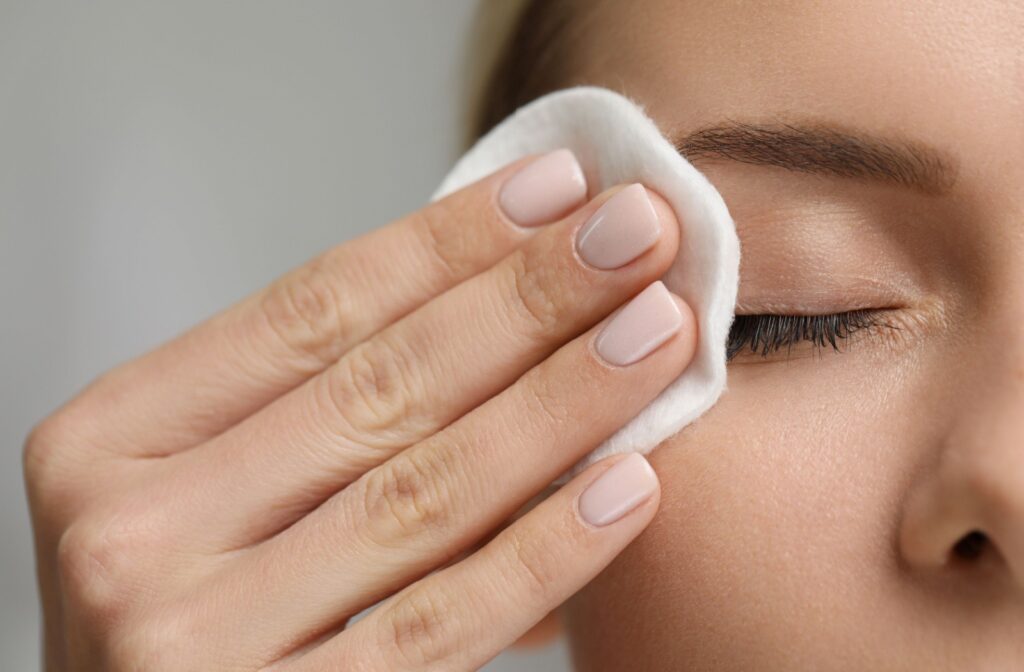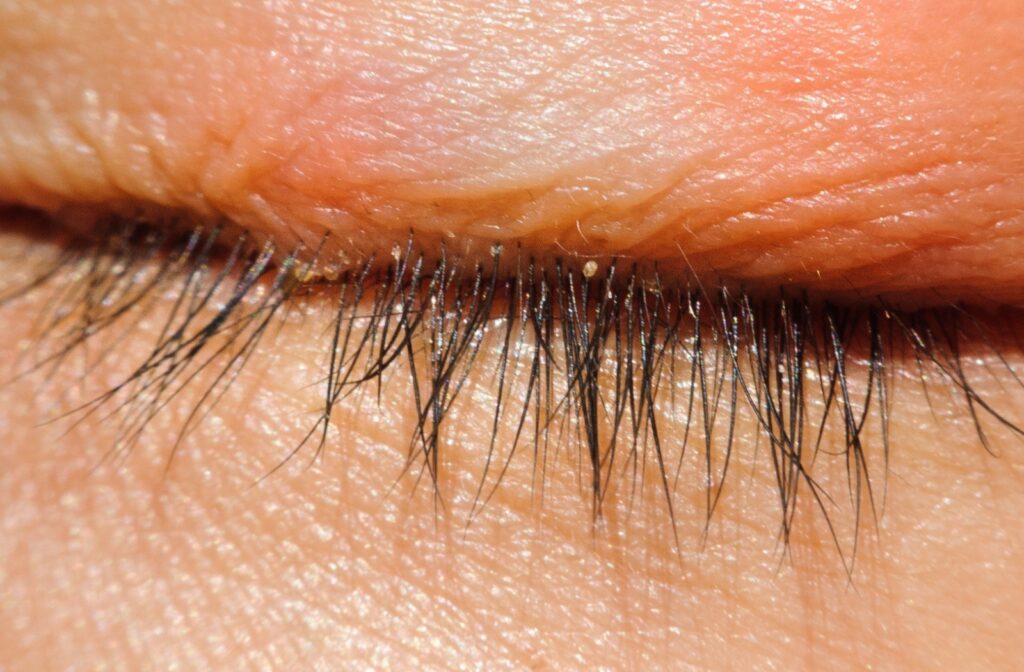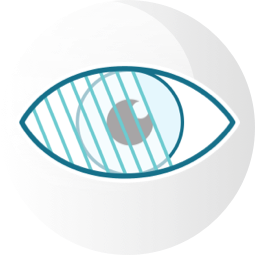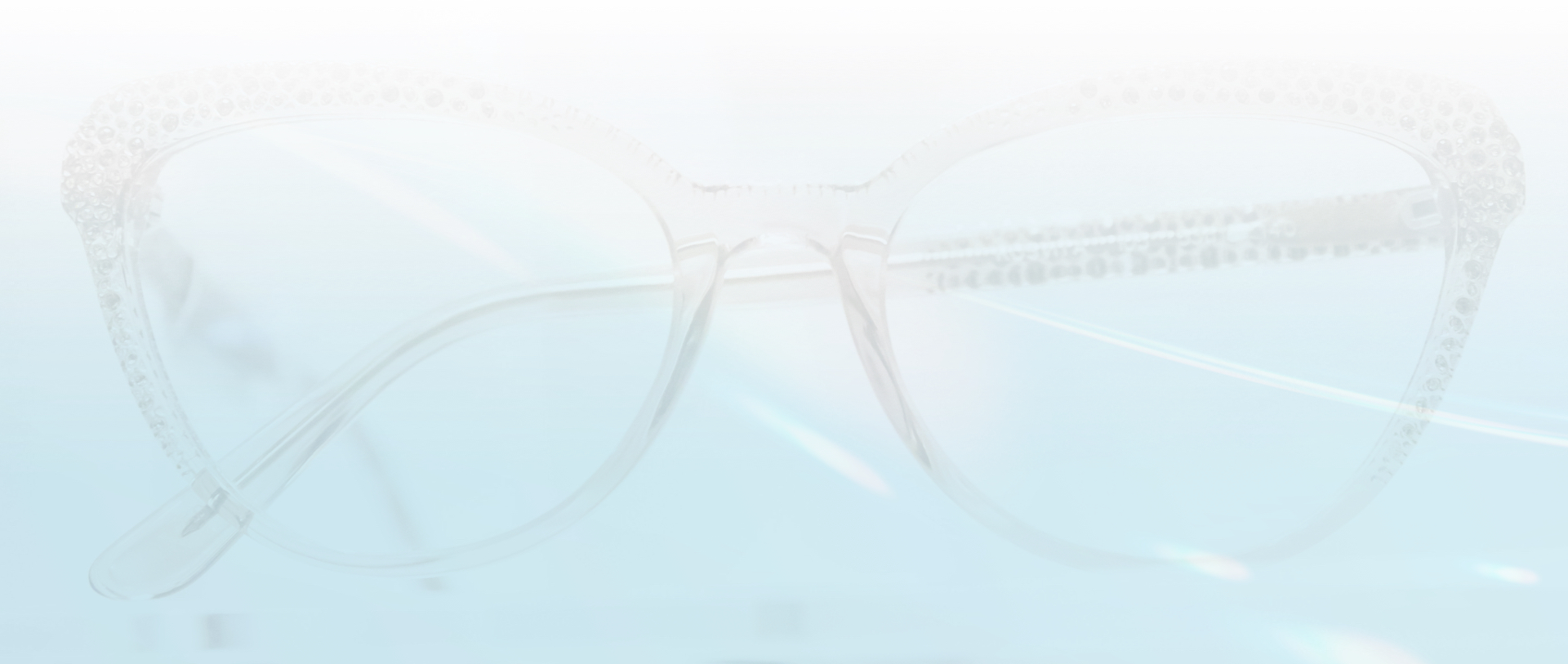Waking up with red, scratchy, or crusty eyelids can be alarming, especially when you have a family to care for. You might worry about what’s causing the discomfort and, more importantly, if it can spread to your loved ones. This concern is common, especially when symptoms can mimic contagious conditions like pink eye. Being aware of the difference between blepharitis and pink eye can be helpful so you can keep yourself and your loved ones healthy.
When it comes to the inflammation of the eyelids known as blepharitis, you can rest assured knowing you won’t pass the scratchiness on to anyone else. With a few care tips from an eye doctor, blepharitis can often be managed at home.
What Exactly Is Blepharitis?
Blepharitis is a common eye condition that can cause inflammation or irritation along the edges of your eyelids. It may irritate your eyes and can sometimes have symptoms that can be mistaken for other conditions, but it typically doesn’t cause long-term harm to your vision.
Common Signs and Symptoms
The symptoms of blepharitis can come and go, and you might experience several at once. People with this condition often report:
- Red or swollen eyelids
- A gritty or burning feeling in the eyes
- Crusty material at the base of the eyelashes
- Scratchy eyelids
- Flaky skin around the eyes
- Eyelids that feel sticky, especially in the morning
These symptoms are often similar to those of other eye conditions, such as allergic or bacterial conjunctivitis (pink eye), which is why a proper diagnosis from your eye doctor is important.
The Main Causes of Blepharitis
This condition can develop for several reasons, and it’s often a combination of factors rather than a single trigger. Identifying the potential cause can help you and your eye doctor find an effective way to manage it.
Why Did I Suddenly Get Blepharitis?
Sometimes, blepharitis seems to appear out of nowhere. It can sometimes be linked to a buildup of bacteria that normally live on your skin without causing problems. Other times, underlying skin conditions like rosacea (a skin condition that causes flushing or long-term redness) or seborrheic dermatitis (dandruff of the scalp and eyebrows) can trigger a bacterial flare-up on your eyelids.
Is Blepharitis from Poor Hygiene?
While a good hygiene routine is a cornerstone of managing the condition, poor hygiene does not directly cause it. Anyone can develop blepharitis, regardless of how often you wash your face. This condition is an inflammatory reaction, not a reflection of your personal cleanliness.
Can Blepharitis be Caused by Blocked Oil Glands?
Your eyelids are lined by tiny oil glands (called meibomian glands) that release an oil to help keep your tears from evaporating too quickly. When these glands get clogged, it can lead to inflammation and the dry eye symptoms associated with blepharitis. Learning how to unclog meibomian glands can be a helpful part of managing the condition.
How Blepharitis Spreads
This is a major question for anyone living in close quarters, especially parents with young children. Blepharitis is not contagious, and you cannot catch it from someone else through casual contact.
What About Bacteria and Germs?
The condition is an inflammation, not an eye infection. While the bacteria that can contribute to blepharitis live on everyone’s skin, it’s often the body’s reaction to those bacteria (or an overgrowth) that causes symptoms in some individuals. This doesn’t necessarily mean the bacteria will cause the same reaction in another person.
Is Blepharitis an STI?
No, blepharitis is absolutely not a sexually transmitted infection (STI). It’s a localized dermatological condition affecting the eyelids. It has no connection to STIs or any related activities.

How to Manage Blepharitis at Home
With a consistent daily routine, you can often manage the symptoms of blepharitis from home. Patience is key, as it can sometimes take a few weeks to notice an improvement.
Warm Compresses
Making eyelid care a part of your daily routine, just like brushing your teeth, can help manage flare-ups. A warm compress applied to the eyelids for several minutes can help loosen crusts that can form and unplug any blocked oil glands. This can be done before cleansing, and should always be done with freshly washed hands.
Gentle Cleanses for the Eyelids
Regular, gentle cleansing is one of the steps in controlling your symptoms. After applying a warm compress, you can gently scrub your eyelid margin with a clean washcloth, cotton swab, or a commercial eyelid cleanser. This can help alleviate some of the symptoms of blepharitis.
How to Treat Blepharitis in Children
The same routine of warm compresses and gentle cleaning can work for children, and it’s important to be extra gentle. Working with an eye doctor for regular children’s eye exams helps make the care plan work for you and your child’s needs, and monitor any changes in your child’s eyes.
When to See Your Eye Doctor
If at-home care does not provide enough relief or if your symptoms worsen, it might be time to visit a professional. An optometrist may confirm the diagnosis, rule out other conditions, and create a personalized plan for you.
What to Expect at Your Appointment
Your eye doctor may perform a thorough examination of your eyes and eyelids. Our team may use a special magnifying instrument to get a close look at your eyelid margins, eyelashes, and oil gland openings. This helps us determine the type and severity of your blepharitis.
Professional Treatment Options
In some cases, our team might recommend treatments beyond at-home care. These can include treatment options such as prescription eye drops, ointments, or nutritional supplements to help manage inflammation. We may also discuss in-office procedures, such as OptiLight treatment for dry eye, which can help to encourage gland function and reduce inflammation.
Find Support from an Eye Doctor
Our team can provide the guidance and support you and your family may need. We take the time to answer your questions and personalize care for your unique situation.
At McCauley Celin Eyecare Associates, we strive to be your partners in eye health and vision care. Our optometrists understand the importance of eye care, and we are a team that looks forward to building a relationship with you. Book an appointment with us today and begin your vision care journey in Pittsburgh.














